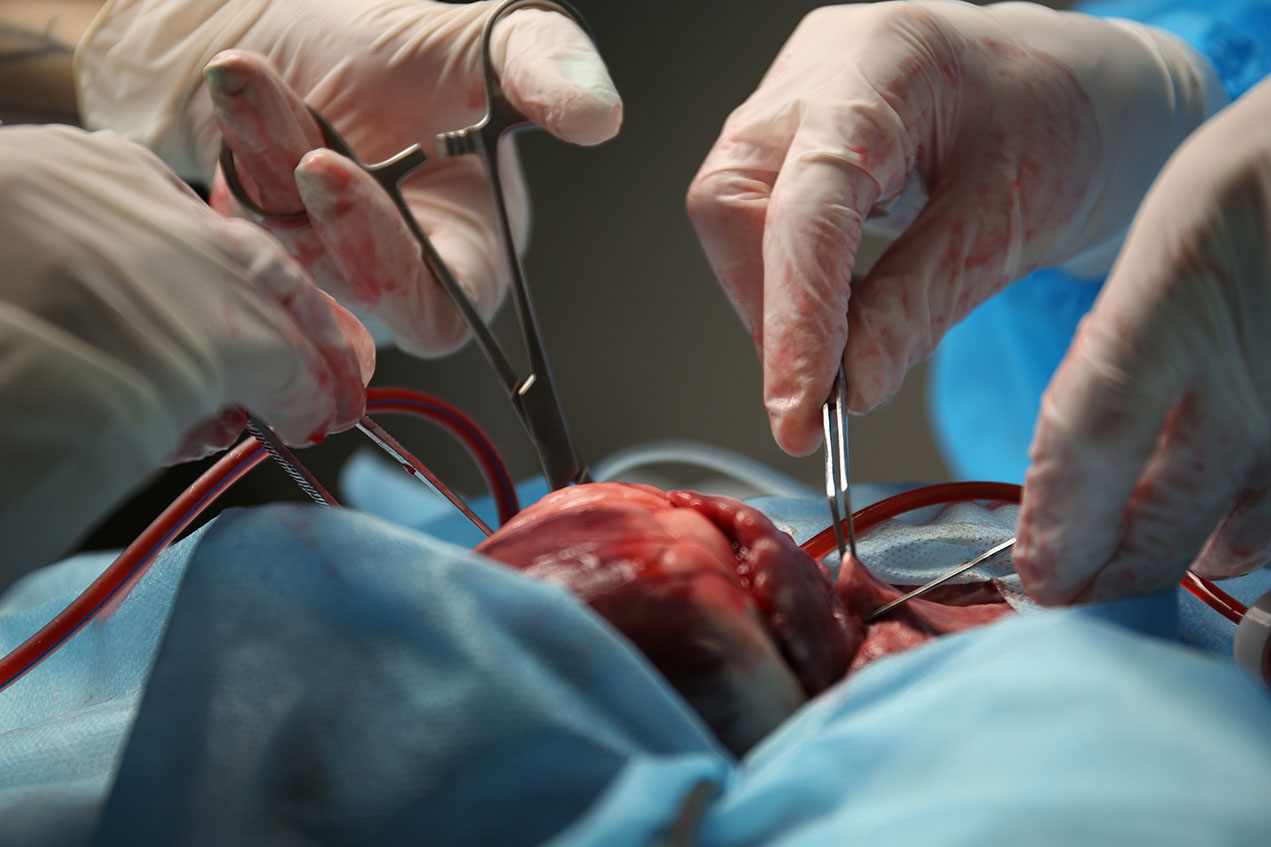Nearly 30 years after the first heart transplant at Keck Hospital of USC, the USC Heart Transplant Program has performed its 500th transplant.
The patient, a 60-year-old male, received a new heart after experiencing ischemic cardiomyopathy, left ventricular failure and stage 3 chronic kidney disease.
“Whether we’re doing our 500th transplant or our first transplant, it’s all the same to us,” said Raymond Lee, MD, surgical director of mechanical circulatory support and heart transplant at Keck Hospital, who performed the 500th transplant. “Each patient gets the same compassionate care. That’s what keeps them part of the Trojan family.”
Their outlook is strong. For heart transplants performed since Jan. 1, 2019, 98.2% of patients at Keck Hospital have survived with functioning transplants one year after their surgeries, compared to a national average of 90.7%, according to data from the Scientific Registry of Transplant Recipients (SRTR).
This grading makes Keck Hospital the only heart transplant center in California to receive a five-bar rating from SRTR in this category, noting the highest tier of performance “likely better” than other transplant centers.
Careful coordination, critical care
Patients who receive heart transplants are facing end-stage heart disease, which carries a life expectancy of only a few months, and those with the most urgent need for new hearts move to the top of the waitlist.
Half of the patients who receive a transplant this year can expect to live up to 15 years longer — and some will live at least 30 years, said Eugene DePasquale, MD, medical director of heart failure, heart transplantation and mechanical circulatory support at Keck Hospital.
The reason? “We’re replacing a failing engine with a brand-new pump, as it were,” DePasquale said. “You see the effects right away.”
A heart transplant requires days of careful coordination, from vetting a potential donor organ to transporting the heart — sometimes from hundreds or thousands of miles away.
Keck Hospital transplant coordinators and nurse practitioners work with patients before and after the procedure to educate them on the process, determine their eligibility and manage care.
While the heart travels to Keck Hospital with the procurement team, surgeons place the recipient on a cardiopulmonary bypass machine and remove their failing heart. When the new heart arrives, doctors inspect the organ and make any necessary repairs before transplanting it.
A milestone to celebrate
In 2021, Keck Hospital performed 41 heart transplants. The landmark 500th transplant will mark 38 for this year, with more potentially forthcoming.
Since the first heart transplant at Keck Hospital was performed in 1993, the hospital has expanded the range of potential donors, taken on sicker individuals for transplant and served a larger number of patients in California and neighboring states.
“It’s a testament to our amazing team,” Lee said.
And the teamwork doesn’t end after a surgery. Heart transplant recipients require lifelong care, so the relationship endures far beyond the life-changing event.
“The patients get so close to you — they text you; they call you,” Lee said. “It’s quite a gift for somebody to go from debilitated, with no quality of life, to spending 10 or 15 more years with their family, with a very meaningful improvement in quality of life.”
—Michael Juliani


